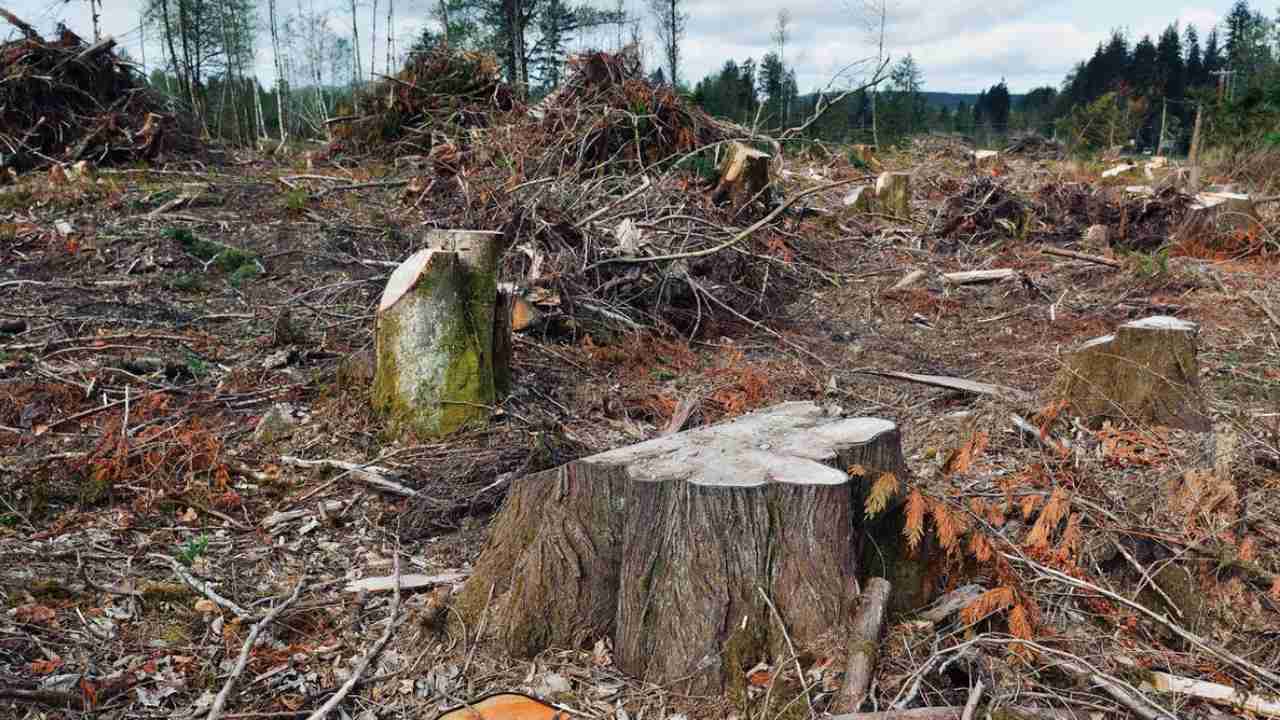UN report- Expertise Information, DD Freedishnews
The DialogNov 09, 2020 16:46:18 IST
Human harm to biodiversity is main us right into a pandemic period. The virus that causes COVID-19, for instance, is linked to comparable viruses in bats, which can have been handed to people through pangolins or one other species. Environmental destruction equivalent to land clearing, deforestation, local weather change, intense agriculture and the wildlife commerce is placing people into nearer contact with wildlife. Animals carry microbes that may be transferred to individuals throughout these encounters.
A serious report launched right now says as much as 850,000 undiscovered viruses which may very well be transferred to people are thought to exist in mammal and avian hosts.

The UN report says to keep away from future pandemics, people should urgently rework our relationship with the surroundings. Picture credit score: Shutterstock
The report, by The United Nations’ Intergovernmental Science-Coverage Platform on Biodiversity and Ecosystem Companies (IPBES), says to keep away from future pandemics, people should urgently rework our relationship with the surroundings.
People prices are mounting
Table of Contents
The report is the results of a week-long digital workshop in July this yr, attended by main consultants. It says a overview of scientific proof reveals:
…pandemics have gotten extra frequent, pushed by a continued rise within the underlying rising illness occasions that spark them. With out preventative methods, pandemics will emerge extra usually, unfold extra quickly, kill extra individuals, and have an effect on the worldwide economic system with extra devastating impression than ever earlier than.
The report says, on common, 5 new illnesses are transferred from animals to people yearly – all with pandemic potential. Previously century, these have included:
- the Ebola virus (from fruit bats),
- AIDS (from chimpazees)
- Lyme illness (from ticks)
- the Hendra virus (which first erupted at a Brisbane racing secure in 1994).
The report says an estimated 1.7 million at the moment undiscovered viruses are thought to exist in mammal and avian hosts. Of those, 540,000-850,000 may infect people.
However moderately than prioritising the prevention of pandemic outbreaks, governments world wide primarily give attention to responding – via early detection, containment and hope for speedy improvement of vaccines and medicines.
Because the report states, COVID-19 demonstrates:
…it is a sluggish and unsure path, and because the world inhabitants waits for vaccines to turn into accessible, the human prices are mounting, in lives misplaced, illness endured, financial collapse, and misplaced livelihoods.
This method can even harm biodiversity – for instance, resulting in massive culls of recognized carrier-species. Tens of hundreds of untamed animals had been culled in China after the SARS outbreak and bats proceed to be persecuted after the onset of COVID-19.
The report says girls and Indigenous communities are notably deprived by pandemics. Ladies characterize extra then 70% of social and health-care staff globally, and previous pandemics have disproportionately harmed indigenous individuals, usually attributable to geographical isolation.
It says pandemics and different rising zoonoses (illnesses which have jumped from animals to people) seemingly trigger greater than US$1 trillion in financial damages yearly. As of July 2020, the price of COVID-19 was estimated at US $8-16 trillion globally. The prices of stopping the following pandemic are prone to be 100 occasions lower than that.
A approach ahead
The IPBES report identifies potential methods ahead. These embody:
- • elevated intergovernmental cooperation, equivalent to a council on pandemic prevention, that would result in a binding worldwide settlement on targets for pandemic prevention measures
- • world implementation of OneHealth insurance policies – insurance policies on human well being, animal well being and the surroundings that are built-in, moderately than “siloed” and regarded in isolation
- • a discount in land-use change, by increasing protected areas, restoring habitat and implementing monetary disincentives equivalent to taxes on meat consumption
- • insurance policies to scale back wildlife commerce and the dangers related to it, equivalent to growing sanitation and security in wild animal markets, elevated biosecurity measures and enhanced enforcement round unlawful commerce.
Societal and particular person behaviour change may also be wanted. Exponential progress in consumption, usually pushed by developed international locations, has led to the repeated emergence of illnesses from less-developed international locations the place the commodities are produced.
So how will we result in social change that may scale back consumption? Measures proposed within the report embody:
- schooling insurance policies
- labelling excessive pandemic-risk consumption patterns, equivalent to captive wildlife on the market as pets as both “wild-caught” or “captive-bred” with info on the nation the place it was bred or captured
- offering incentives for sustainable behaviour
- growing meals safety to scale back the necessity for wildlife consumption.

Cracking down on the unlawful wildlife commerce will assist forestall pandemics. Picture credit score: AP
An Australian response
Australia was one of many founding member international locations of IPBES in 2012 and so has made a casual, non-binding dedication to comply with its science and coverage proof.
Nevertheless, there are not any ensures it should settle for the suggestions of the IPBES report, given the Australian authorities’s underwhelming current file on environmental coverage.
For instance, in current months the federal government has to this point refused to signal the Leaders’ Pledge for Nature. The pledge, instigated by the UN, features a dedication to taking a OneHealth method – which considers well being and environmental sustainability collectively – when devising insurance policies and making selections.
The federal government lower funding of environmental research programs by 30%. It has sought to scale back so referred to as “inexperienced tape” in nationwide environmental laws, and its financial response to the pandemic will likely be led by trade and mining – a spotlight that creates additional pandemic potential.
Lastly, Australia is considered one of few international locations and not using a nationwide centre for illness management and pandemics.
However there are good causes for hope. It’s inside Australia’s means to construct an organisation centered on a OneHealth method. Australia is likely one of the most biologically various international locations on the planet and Australians are keen to guard it. Additional, many buyers imagine correct environmental coverage will assist Australia’s financial restoration.
Lastly, we have now numerous passionate consultants and conventional homeowners keen to do the arduous work round coverage design and implementation.
As this new report demonstrates, we all know the origins of pandemics, and this offers us the facility to stop them.![]()
Katie Woolaston, Lawyer, Queensland College of Expertise and Judith Lorraine Fisher, Adjunct Professor College of Western Australia, Institute of Agriculture
This text is republished from The Dialog underneath a Inventive Commons license. Learn the unique article.
#report #Expertise #Information #DD Freedishnews
































